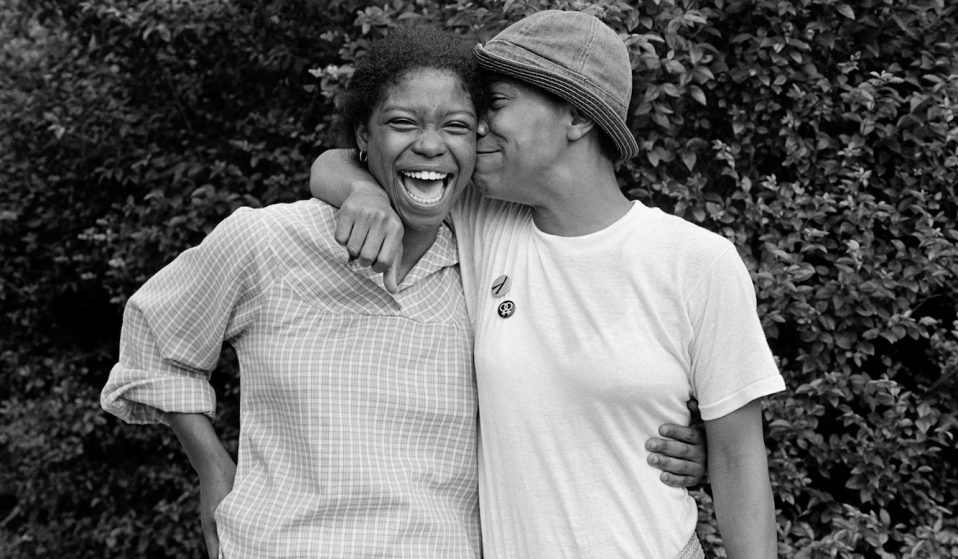The LGBTQI+ community has always experienced disproportionately higher levels of loneliness and worsening mental health and the current pandemic has only intensified the circumstances. New studies have found that out of all the identities in the community, lesbians have borne the brunt, dealing with these issues most.
According to a study by Just Like Us, a charity for LGBTQI+ youth, lesbians are the most likely identity group under the LGBTQI+ umbrella to experience loneliness. Almost 9 out of 10 (87 percent) lesbians felt this way and often reported feeling detached from the people they were closest to. 60 percent of them reported experiencing this on a regular basis since the pandemic began.
In another survey by Just Like Us that included over 1000 LGBTQI+ secondary school pupils, more lesbian girls reported their mental health was getting worse (78 percent) than any other groups such as gay boys (71 percent), bisexual people (74 per cent) and trans people (70 percent).
Lesbian erasure is one of the biggest problems facing young queer women. In an interview for Cosmopolitan, Amy Ashden, Head of Comms and Media at Just Like Us, talks about the dismissal of the word “lesbian” and how lesbian women are “either fetishized, disregarded as not worthy or perhaps even as old fashioned.” She also touches on how lesbians are thought to be anti-trans and how this narrative has been picked up by the media in order to pit communities against each other: “I know that for me, and other lesbian friends, that rhetoric seems absurd, frustrating and doesn’t help our general wellbeing.”
To a great extent, women are still regarded as objects of male desire, lesbians being highly fetishized by straight men and seen as a challenge for men to “convert.” The lack of safe places adds more to the fear of going out as a lesbian and leads to increased levels of loneliness. Talking about safe spaces for queer people, Amy says that “most are catered to men.”
“As a lesbian, I’ve often found straight women feel uncomfortable or awkward around lesbians or even using the word “lesbian”, which is vastly different to the way they stereotypically embrace gay men. That can be very alienating, especially growing up, and adds to the horrible idea that being a lesbian is somehow wrong or disgusting or shameful.”
Patriarchal attitudes undermine the use of the word “lesbian”, favoring terms such as “queer” or “gay.” In an article for An Injustice Mag, Itxy Lopez talks about why “lesbian” became a bad word and why so many lesbians “dislike identifying themselves as who they are.”
“When characters on TV would use the term “lesbian”, they’d refer either to a woman who was being over-sexualized or a woman who had something wrong with her because she wasn’t interested in men,” she says.
A 2016 study from Variety proved the disproportionate representation of women in movies and television, and stated that “almost 80 percent of showrunners for new scripted shows were men.” This, paired with the noticeable lack of lesbian characters, lead to harmful stereotypes of lesbians.
“That of the oversexualized, two-dimensional woman who serves only to satisfy some pornographic fantasy of a straight man, and that of a bland, largely disinteresting woman who serves just as hollow a purpose. The former is the projection of the only way a lesbian can serve as meaningful to a straight man, and the latter is the straight man’s reaction to a woman being completely uninterested in him sexually by making her as boring and unimportant to the plot as possible.”
In an article on Gay Star News, Matilda Davies talked about her struggles after coming out and how she lost many straight men friends. She told a story about a friend of hers, who she had met in her first term at university and hung out with regularly for over two years. However, “when [she] came out, he admitted to [her] that he’d always hoped something would happen between [them]. After that, he never spoke to [her] again.”
In the same article, she confessed that it was difficult to realize that many of her friendships were not real and that she struggled with loneliness after losing them. She also shared that it was hard for her to make female friends because they would think that she is “uncontrollably attracted to them,” which is an unfair assumption that many lesbians face every day.
Matilda also talked about what it’s like living in a male-dominated world as a lesbian: “As much as I didn’t want to admit it, after I came out, I still intensely wanted straight men to think I was beautiful. I think for many years I mistook this desire to be desired for genuine attraction,” she says.
In the end, Matilda found “a sense of belonging and acceptance” within a new group of LGBTQI+ friends and concluded that: “You only find true friends by being your true self. This is how you build a community around you that appreciates you for who you are. You just need to find the courage to be yourself.”
Although we’ve certainly seen progress when it comes to representation for women in the LGBTQI+ community, we need to put an end to lesbian erasure and taboo surrounding the word by advocating for inclusivity.
Header image credit: huckmag

